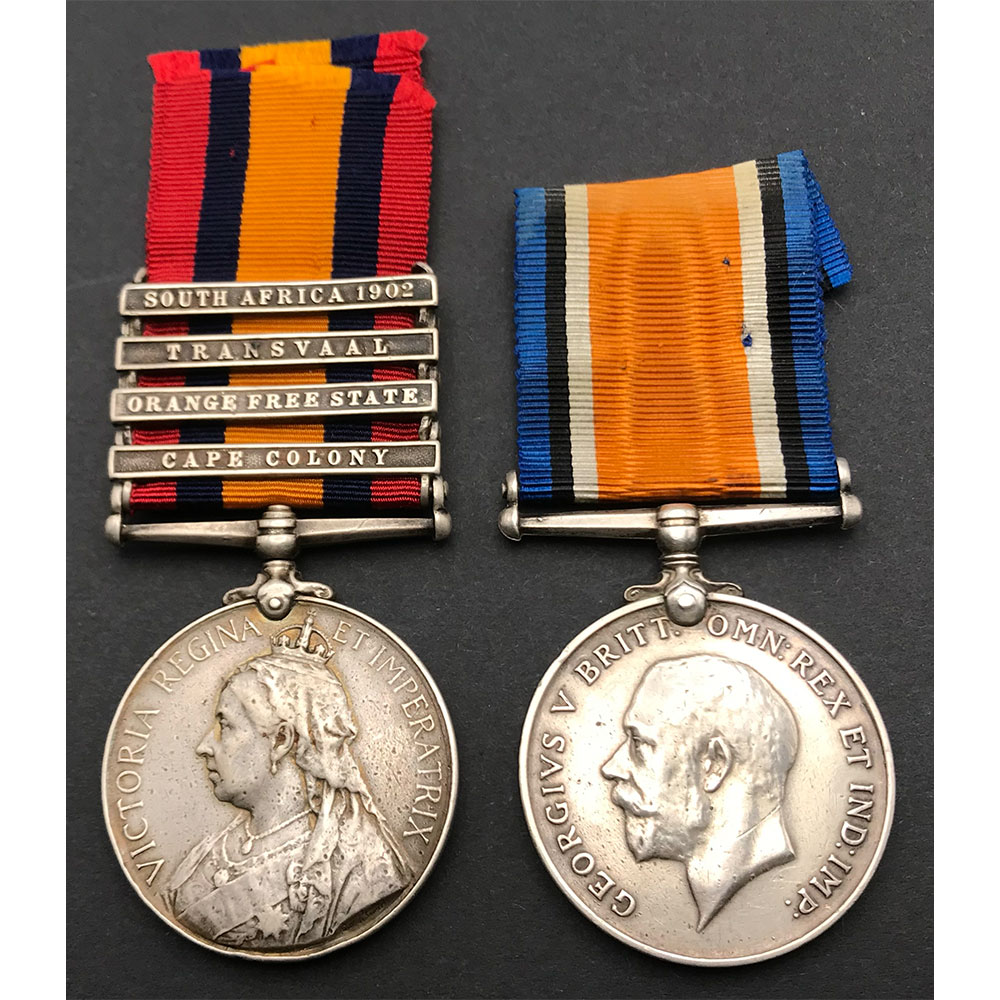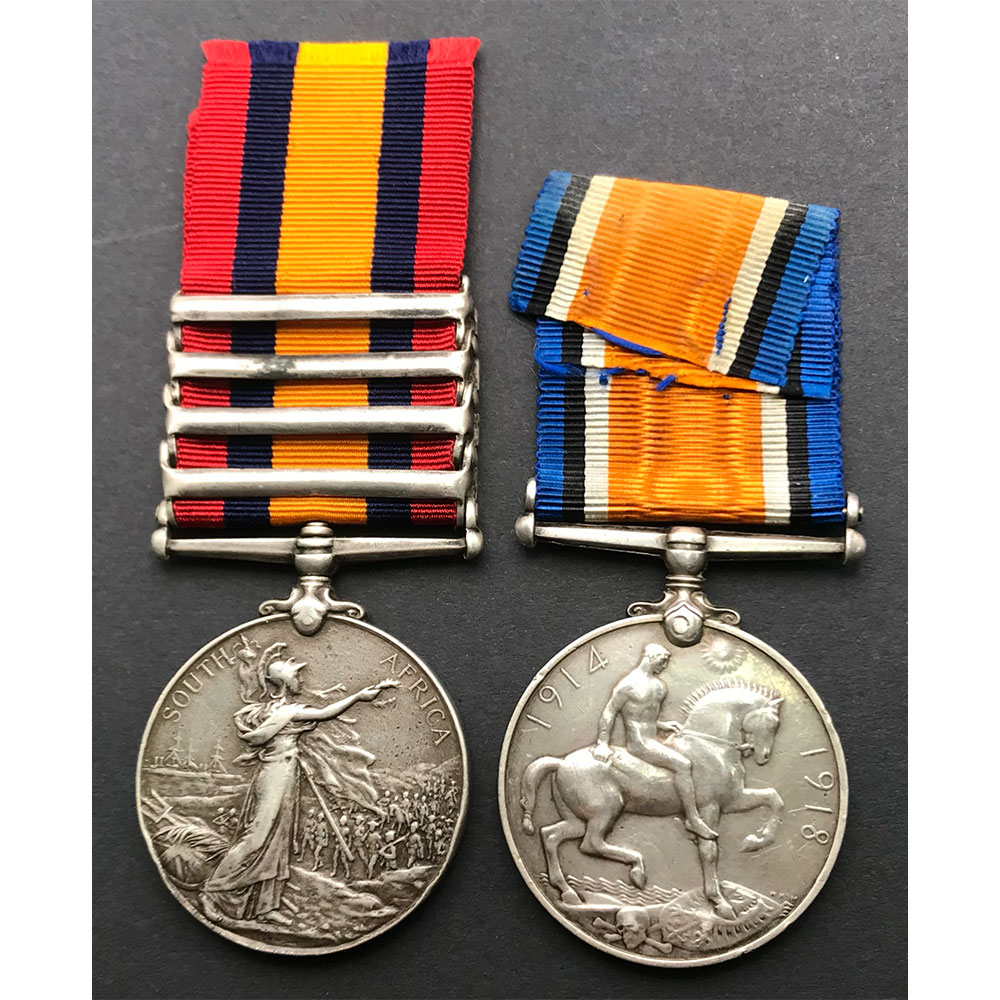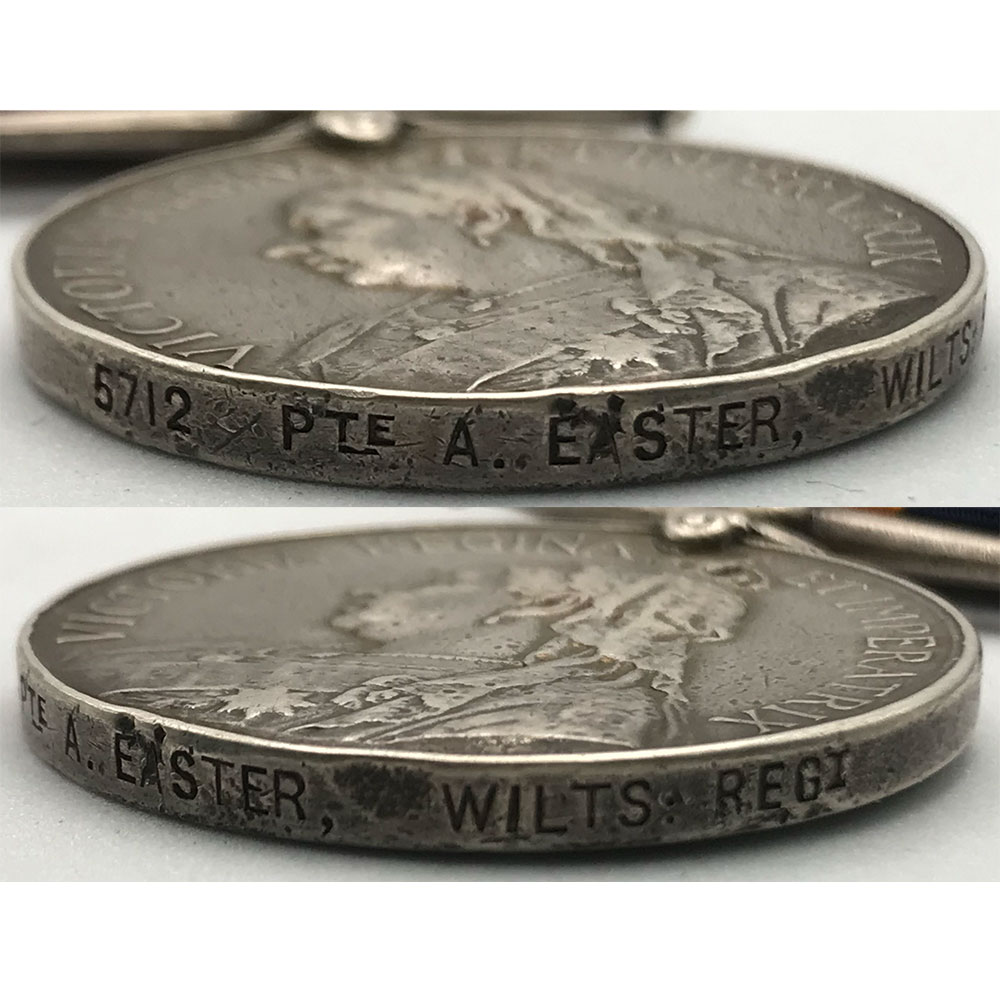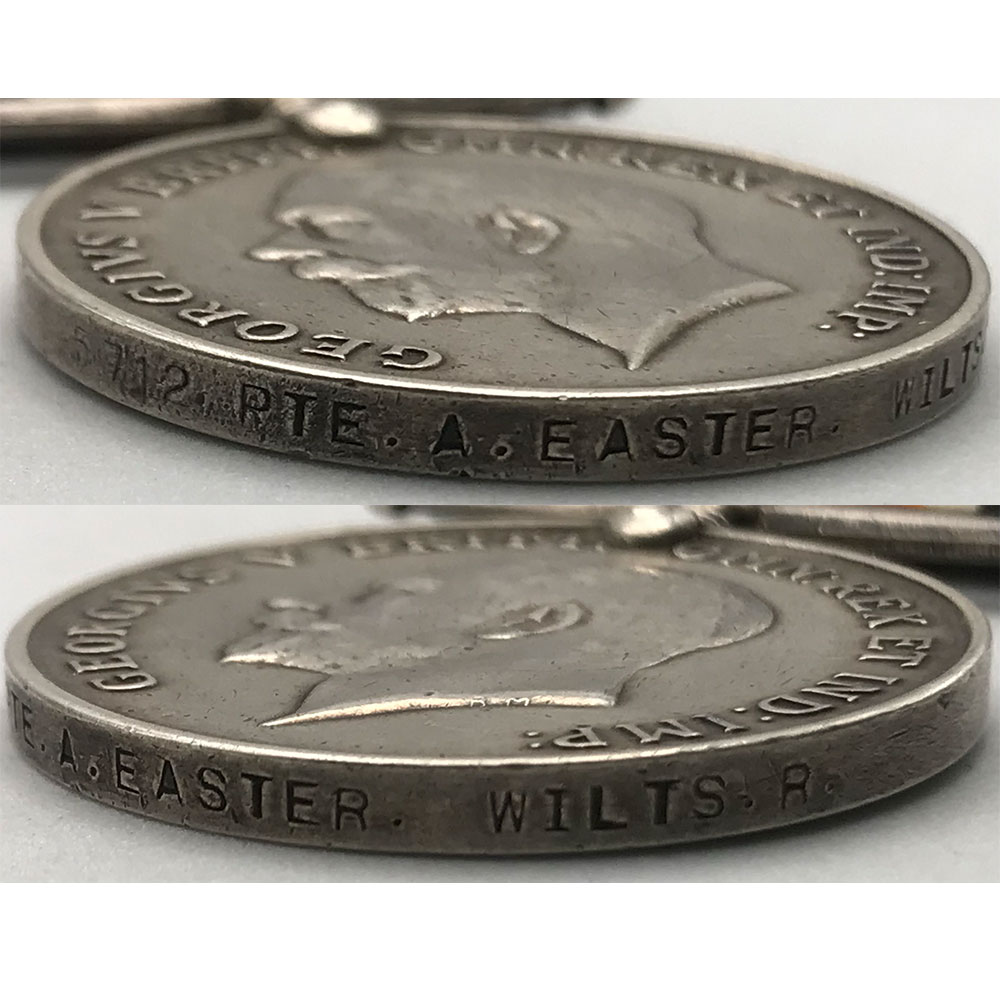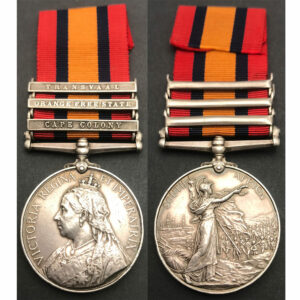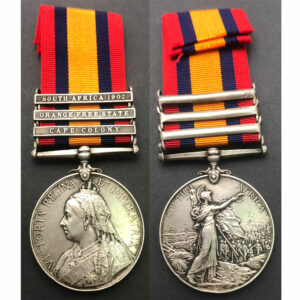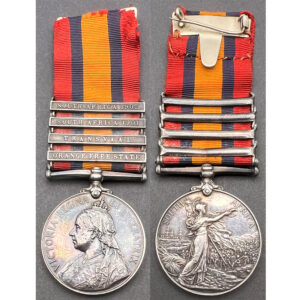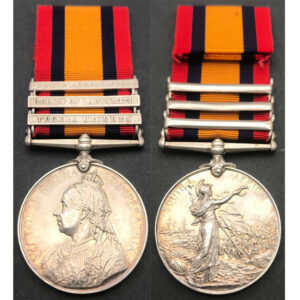Description
Queen’s South Africa, 4 bars, Cape Colony, Orange Free State, Transvaal, SA 1902, WW1 British War Medal, 5712 Private A. Easter, Wiltshire Regiment, for both wars.
QSA officially impressed: “5712 Pte A. Easter, Wilts: Regt”
BWM officially impressed: “5712 Pte A. Easter. Wilts. Regt”
Confirmed on the medal rolls, also earned the 1914 Star with clasp and “roses” as well as the Victory Medal.
Contact marking and general wear.
With copy service papers.
“AN ABSENTEE – Arthur Easter was charged with having been an absentee from the 2nd Wilts Regiment on October 10th. The Offence was admitted – Defendant was remanded to await the arrival of a military escort – The Constable who arrested defendant, P.C. Bowyer was allowed 10s Reward.” Swindon Advertiser, 23rd October 1903, when he had to forfeit his medal, and had it restored later.
Arthur Easter, was born in Broad Class, Exeter, Somerset, circa 1882.
He first enlisted into the Wiltshire Regiment on 2nd June 1901, from the 3rd Militia Battalion Wiltshire Regiment.
He continued his service through World War 1, until his discharge on 4th October 1915.
He was discharged due to his wounds, and issued a silver war badge on 17th October 1916.
He saw the following postings
Home, 11th march 1901 – 19th June 1902
St Helena, 20th June 1901 – 25th march 1902, Guarding Boer POWs
South Africa, 26th March 1902 – 21st May 1903, Active Service Boer War
Home, 22nd May 1903 – 3rd Feb 1904
4th Feb 1904 – 3rd Nov 1909
Home, 4th Nov 1909 – 18th Sept 1914
British Expeditionary Force France, 19th September 1914 – 28th July 1915, invalided home, leg amputated.
Home, 29th July 1915 – 4th Oct 1915.
“Shell Wound of Left Leg amputation of thigh.”
War Office Casualty List of 11th July 1915, notes the wound occurring on 10th July 1915, with the 1st Bn Wilts Regt.”
During 1907 his Officer Commanding, Lt Col Kirkwood, Commanding 1st Wilts Regt, sent the following letter to the war office:
“Would you please forward the Queen’s South Africa Medal and Clasps “Cape Colony” “Orange Free State” “Transvaal” “South Africa 1902” of No 5712 Private A. Easter of this battalion.”
“The Queen’s South African medal for No 5712 Private A. Easter is forwarded herewith and as there are no clasps attached to it, I send also the envelope which contained the medal it being sent to this office from O.C. 62RD on 1.7.05. My record of medals contains a note against the name of No 5712 A. Easter, that the medal only was received.
As in all probability you would be able to trace the receipt of the O.C. 62 R.D. for the medal sent to the depot on desertion of Pte Easter, I should be obliged if you would say whether that receipt contains any mention of the claps asked for above.”
It appears the medal only was received, and his clasps were not issued due to a period of desertion, but he later cleaned up his act as a soldier to be discharged with very good conduct, and his officer seems to have sent the medal back to have the clasps attached.
This seems correct, as the 4 clasps are all officially riveted together, and now attached to the suspension of the medal correctly.
His period of desertion, had occurred shortly after returning home from the Boer War, on 10th October 1903 he was tried at Longmoore, for “Deserting His Majesty’s Service”, having been caught by a local Wiltshire Constable.
He was tried on 1st January 1904 by District Court Martial and sentenced to 28 days of imprisonment and hard labour.
“All Medals and Decorations to be forfeited on conviction of desertions, also all his previous service towards his terms of engagement”, fortunately they never took his medal or held onto it for a brief while, and even returned it with all the bars fitted on.
Upon discharge to the reserves in 1913, he was planning to join the Wilts County Police, his conduct described as “Very Good, no offence during the last 5 9/12 years of service. No instance of drunkenness in whole service of 8 7/12 years. Has been for 1 years a member of the IOGT in India.”
His special qualifications included a “Marksman” Classification and also “Machine Gunner has been trained”
“18 months as Garrison Policeman. Machine Gun Detachment 6 months, 3 months as Hospital Orderley.”
A further form in his papers, forces him to pay for an illegitimate child he had with a local woman in Swindon.
“Be placed under a stoppage of pay at the rate of 4 pence a day from the date of this order for the support of his illegitimate child.”
To:
“Mrs A. Davies, 44 Deburgh Street, Swindon, Wilts.”
After the war, and missing a leg, he was living in Shoeburyness during 1921 where he worked as a “Store Man, Royal Engineers Experimental Department Shoeburyness.”
